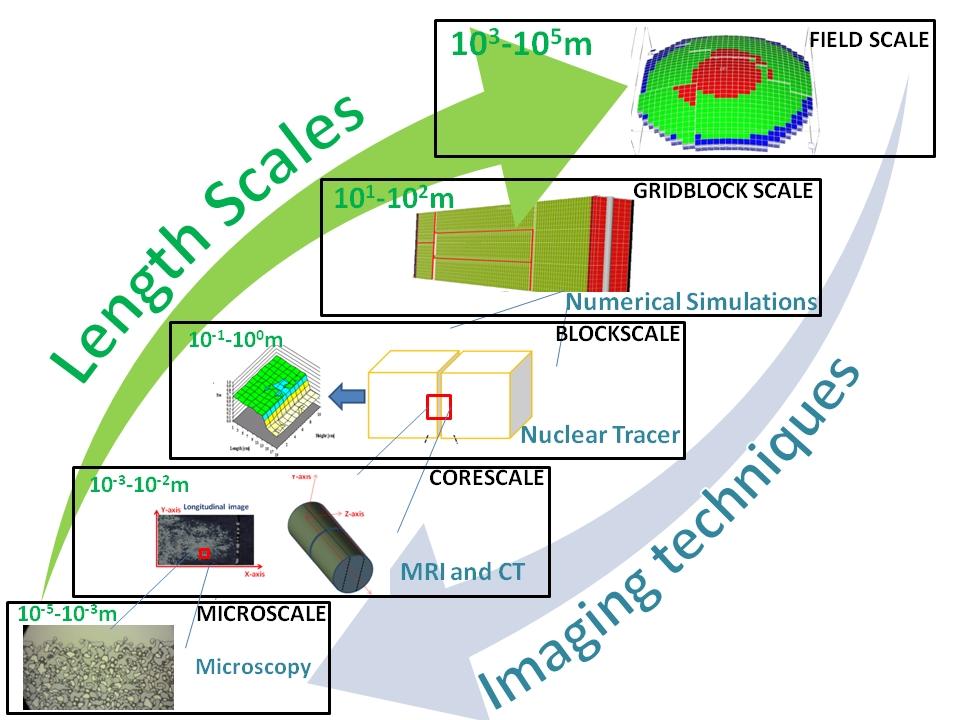Upscaling CO2 Foam EOR and CO2 Storage
A multidisciplinary research program has been initiated to advance the use of CO2 foam mobility control for enhanced oil recovery (EOR) and CO2 storage. The emphasis is placed on bridging the gap between laboratory foam behavior and field scale processes to further understand size-dependent foam dynamics.
Main content
This research and demonstration project is an international collaborative effort between universities and industry in the US, Norway, France, and the Netherlands with the common goal to advance CO2 foam technology for in-depth mobility and conformance control for enhanced oil recovery (EOR) and CO2 storage as part of carbon capture, utilization, and storage (CCUS). The project integrates fundamental CO2 EOR and CO2 storage research with a field scale application to verify foam’s ability to reduce CO2 mobility, improve oil recovery, and increase CO2 storage potential.
Foam stability, EOR, and CO2 storage potential is assessed in the laboratory (pore and core scale) at reservoir conditions and results are numerically upscaled to investigate foam behavior at the interwell distance (field scale) on validated reservoir models. The project designs field pilot tests through using optimized CO2 foam formulations, in onshore fields in the Permian Basin of west Texas, providing a roadmap for successful demonstration on the Norwegian Continental Shelf (NCS). The onshore pilot tests provide a site to experimentally study CO2 mobility reduction, EOR, and associated CO2 storage where the cost of operating is significantly reduced, compared to offshore fields. The Permian Basin also has well developed CO2 infrastructure, shorter interwell distances, and over 40 years of experience with CO2 EOR. Results from the pilot tests will be needed to realize industrial CCUS in Norway and is aligned with the Full-Scale Offshore CCS Value Chain project scheduled to be executed in 2022 by the Norwegian Government, Equinor, Shell, and Total.
Collaborating universities are: Rice University, University of Texas at Austin, Texas A&M, Stanford University, University of Kansas, New Mexico Tech, Imperial College, TREFLE Bordeaux, TU Delft, NTNU and the University of Bergen, Norway.
